
The Blastobasidae are a family of moths in the superfamily Gelechioidea. Its species can be found almost anywhere in the world, though in some places they are not native but introduced by humans. In some arrangements, these moths are included in the case-bearer family (Coleophoridae) as subfamily Blastobasinae. The Symmocidae are sometimes included in the Blastobasidae as subfamily or tribe.

Urodidae, whose species are commonly known as false burnet moths, is a family of moths in the lepidopteran order. It is the type genus in the superfamily, Urodoidea, with three genera, one of which, Wockia, occurs in Europe.
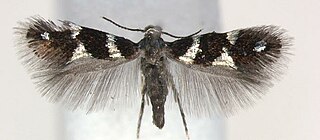
The Heliozelidae, commonly known as shield-bearer moths, are a family of small, day flying monotrysian moths distributed worldwide. The larvae of most heliozelid species are leaf miners who cut distinctive shield-shaped cases from the surface of the host leaf, hence the common name. Some species are considered pests of commercial crops such as grapevines, cranberries, and walnuts. The taxonomy of this family is poorly understood.
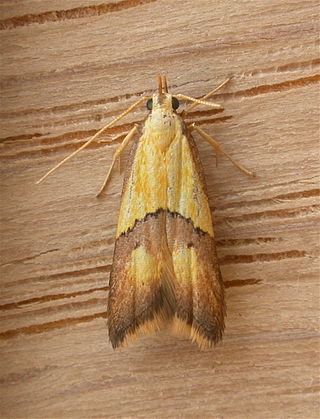
The Lecithoceridae, or long-horned moths, are a family of small moths described by Simon Le Marchand in 1947. Although lecithocerids are found throughout the world, the great majority are found in the Indomalayan realm and the southern part of the Palaearctic realm.

Dichomeris is a genus of moths in the family Gelechiidae erected by Jacob Hübner in 1818.
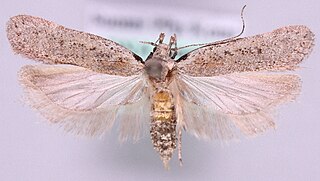
Gelechia is a genus of moths in the family Gelechiidae. The type species is Gelechia rhombella.
Auximobasis is a genus of the gelechioid moth family Blastobasidae. It is sometimes included in Blastobasis.
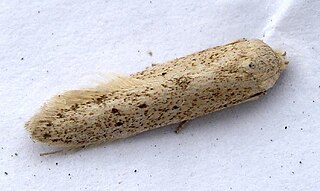
Blastobasis is the type genus of the gelechioid moth family Blastobasidae; in some arrangements these are placed in the case-bearer family (Coleophoridae) as a subfamily. Within the Blastobasidae, the subfamily Blastobasinae has been established to distinguish the Blastobasis lineage from the group around Holcocera, but the delimitation is not yet well-resolved.

Lecithocera is a genus of moths in the lecithocerid subfamily Lecithocerinae. The genus was erected by Gottlieb August Wilhelm Herrich-Schäffer in 1853.

Acrocercops is a genus of moths in the family Gracillariidae.
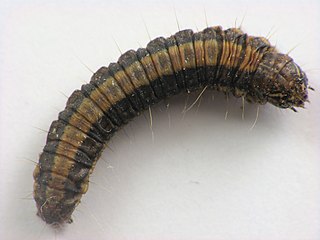
The Epipaschiinae are a subfamily of snout moths. More than 720 species are known today, which are found mainly in the tropics and subtropics. Some occur in temperate regions, but the subfamily is apparently completely absent from Europe, at least as native species. A few Epipaschiinae are crop pests that may occasionally become economically significant.
Auximobasis administra is a moth in the family Blastobasidae. It was described by Edward Meyrick in 1922. It is found in Peru and Colombia.
Auximobasis agrestis is a moth in the family Blastobasidae. It was described by Edward Meyrick in 1922. It is found in Pará, Brazil.
Auximobasis angusta is a moth in the family Blastobasidae. It was described by Edward Meyrick in 1922. It is found in Colombia and Ecuador.
Auximobasis flavida is a moth in the family Blastobasidae. It was described by Edward Meyrick in 1922. It is found in Peru and Pará, Brazil.
Auximobasis prolixa is a moth in the family Blastobasidae. It was described by Edward Meyrick in 1922. It is found in Peru.
Auximobasis invigorata is a moth in the family Blastobasidae. It was described by Edward Meyrick in 1932. It is found on the Virgin Islands.
Auximobasis obstricta is a moth in the family Blastobasidae. It was described by Edward Meyrick in 1918. It is found in Guyana.
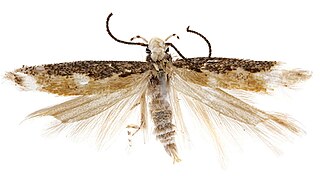
Gelechiinae is a subfamily of moths in the family Gelechiidae. It was described by Henry Tibbats Stainton in 1854.
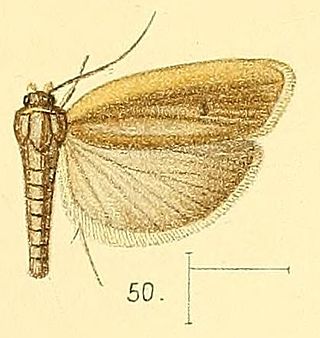
Stenoma is a genus of moths. The type species is Stenoma litura, which was described by Philipp Christoph Zeller in 1839.











